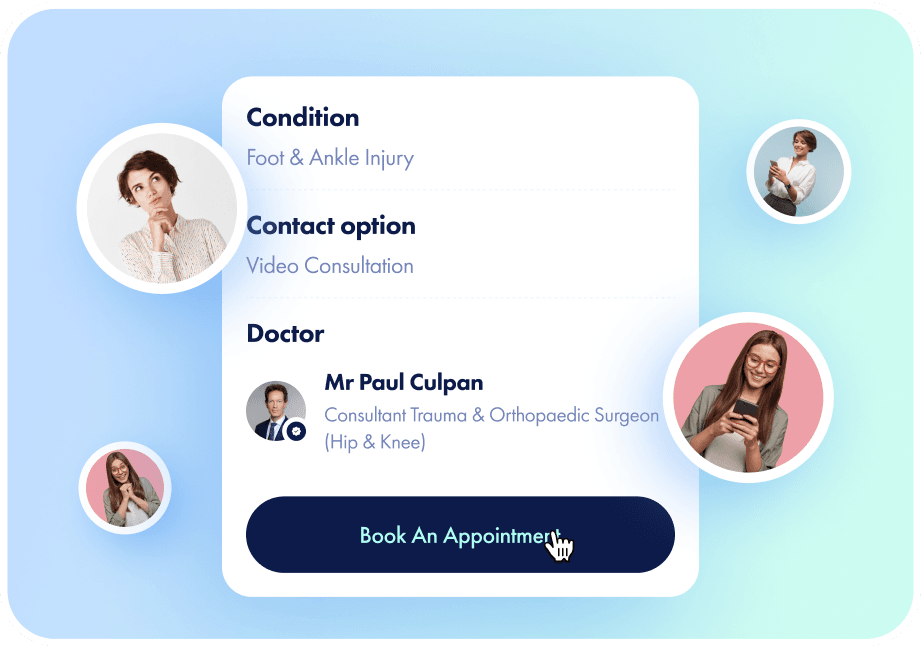
Conveniently reserve your spot with just a few clicks through our easy-to-use online booking system.


Depression is a common but serious mood disorder that negatively affects how you feel, think, and act. It can cause feelings of sadness, hopelessness, and a loss of interest in activities you once enjoyed. Depression can significantly impact your daily life, relationships, and work. However, it's important to know that depression is treatable. Here at LIPS, our team of specialists is dedicated to providing effective treatment options to help you manage depression and regain control of your well-being.
You are not required to provide a referral letter from your doctor or GP.
Start a visit quickly and discreetly whenever works best for you.
Our doctors review symptoms, prescribe treatments if needed.
Proceed with your healthcare journey as you wish. You're in control.
You control medical records, access anytime.
Depression diagnosis starts with a thorough assessment by a healthcare professional. They'll ask about your symptoms, medical history, and mental health background, looking for patterns and evaluating if your experiences align with specific types of depression, like seasonal or postpartum.
Five key symptoms presenting for at least two weeks are generally needed for an official diagnosis. Blood work or other tests might be conducted to rule out underlying medical contributors.
Сontact us to schedule an appointment or learn more
Conveniently reserve your spot with just a few clicks through our easy-to-use online booking system.
Have a question or request? Drop us a message, and our team will get back to you promptly.
Feel free to give us a call, and our friendly staff will be glad to assist you over the phone.
Effectively managing depression often involves a multi-pronged approach, combining therapies and lifestyle changes:
Talk therapy, like cognitive behavioural therapy (CBT), helps identify and modify negative thoughts, emotions, and behaviours contributing to depression.
Antidepressants can regulate brain chemistry, impacting mood and motivation. Finding the right medication and managing potential side effects is critical but may take some trial and error.
Acupuncture, massage, and mindfulness practices can offer additional support, particularly for mild and persistent symptoms.
In severe cases or for depression with psychosis, options like ECT, TMS, and VNS may be considered.
Regular exercise, quality sleep, healthy eating, social connections, and limiting alcohol can significantly improve mood and overall well-being.
From Home or Face to Face, all at your convenience
Schedule a Video Consultation or a Face-to-Face appointment at your convenience by using our online booking system.
Schedule a Video Consultation or a Face-to-Face appointment at your convenience by using our online booking system.
Your dedicated Specialist Doctor will provide you with personalized treatment, tailoring it to your specific needs, and may include necessary medication.
Seeing someone you love struggle with depression can be heartbreaking. You want to reach out and offer help but might feel unsure how.
Seeing someone you love struggle with depression can be heartbreaking. You want to reach out and offer help but might feel unsure how.
Be a Compassionate Listener:
Offer your presence without judgment. Listen attentively to their feelings, validate their experiences, and let them know you're there for them.
Offer Practical Support
Help them manage everyday tasks, like cooking, cleaning, or running errands. This can alleviate some of the burden and allow them to focus on their well-being.
Avoid Giving Unsolicited Advice
While offering information about resources or treatment options can be helpful, refrain from giving unsolicited advice. Respect their choices and trust their journey.
Take Care of Yourself
Supporting someone with depression can be emotionally draining. Be sure to prioritise your well-being. Set boundaries, seek support for yourself, and engage in activities that bring you joy.
Living with Depression
The prognosis for depression varies, influenced by factors like its severity, type, and whether it's a temporary or long-term condition. Co-occurring issues like other mood disorders, medical conditions, or substance use can also play a role. However, most people with depression can live healthy, fulfilling lives when they receive the right care.
It's important to remember that depression can recur, so seeking medical help promptly if symptoms reappear is crucial. But with ongoing support and treatment, living well with depression is a realistic and attainable goal.
Whether you're experiencing symptoms of depression or supporting a loved one, seeking professional help is a critical step. At our London clinic, our dedicated team is ready to provide the care and support you need.
Don't hesitate to take the first step towards healing and recovery. Schedule an appointment with us today.












